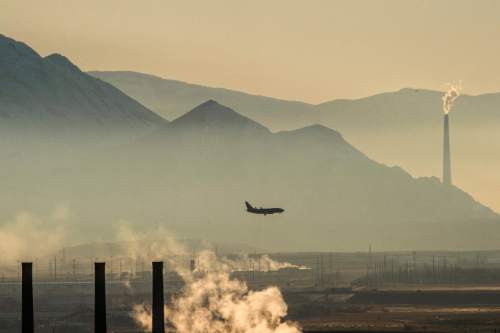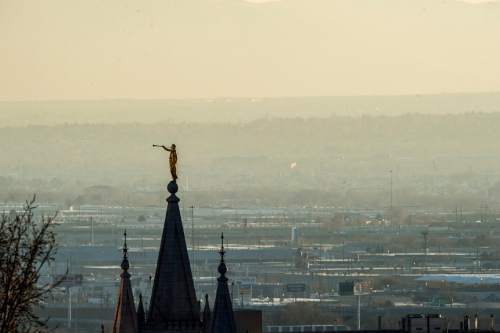This is an archived article that was published on sltrib.com in 2016, and information in the article may be outdated. It is provided only for personal research purposes and may not be reprinted.
Salt Lake County residents have fewer days than those in the rest of the state that they can burn wood and other solid fuels without facing fines.
The Utah Division of Air Quality (DAQ) uses pollution levels to set "action days" that either ask residents to voluntarily refrain from burning solid fuels — such as coal, wood and wood pellets — or make it mandatory that they do not. Beginning Jan. 1, those in Salt Lake County may now be cited and fined for burning on even voluntary action days under a regulation adopted last year by the county's health board.
Salt Lake County had 36 action days last winter, 13 of which were voluntary, according to DAQ archives.
The county regulation took effect when it was adopted in 2014, but the health department opted to delay enforcement to allow for an educational period, said Nicolas Rupp, a public information officer for the health department. Up to this point, Salt Lake County residents — including those living in municipalities within the county — caught burning on voluntary no-burn days were notified of their infractions in person, over the phone or via door hangers.
"Our first line is education," Rupp said.
That education-focused policy will continue when the health department takes over enforcement of solid-fuel bans Jan. 1, Rupp said, but repeat offenders will begin receiving fines and citations. Fines start at $20 but can increase up to $299, depending on the severity of the violation.
Two Salt Lake County residents were cited for burning on mandatory action days in 2014, according to Jay Morris, manager of DAQ's Minor Source Compliance Section.
Resident complaints are used to monitor violations of the solid-fuel regulation at the state level, a tactic the county health department plans to use as well. Exemptions for those on the single source registry — a database of homes that can use only solid fuels — will remain in place. Burning will be allowed during emergencies such as power outages regardless of the action day status.
Salt Lake County residents who wish to file a complaint may do so online at SLCoHealth.org or by calling 385-468-8888. Elsewhere in the state, residents may report violations using the online "Inversion Toolkit" at airquality.utah.gov or by calling 801-536-4000.
Twitter: @EmaPen





